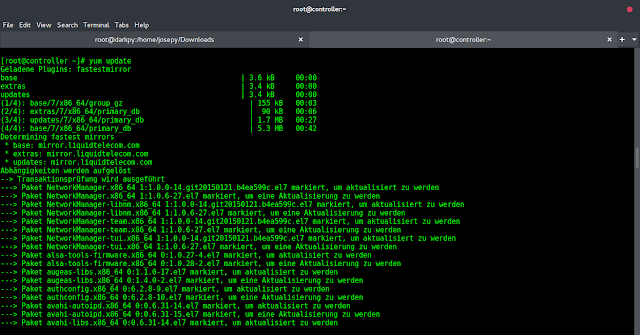java.lang.ManagementPermission Class contains abstract methods to determine access to a system resource. Every object has some name. Most permission object also has some “actions” associated with it that tells which activities are permitted by this permission object.
Class declaration :
public final class ManagementPermission extends BasicPermission
Constructor:
Permission(String name)
public Permission(String name): Constructs a new Permission object with this name.
Method:
| Method | Description |
|---|---|
| checkGuard(Object object) | It is used to determine if this Permission object can be guarded (protect access to another object) or not. |
| equals(Object obj) | It checks whether two Permission objects are equal or not. |
| hashCode() | It returns the hash code value for this Permission object. |
| getName() | It returns the name of this Permission. |
| implies(Permission permission) | It checks whether this ManagementPermssion object implies this permission or not. |
| newPermissionCollection() | It returns a new PermissionCollection object. |
| toString() | It returns a string representation of the specified Permission object. |
1.public void checkGuard(Object object): It is used to determine if this Permission object can be guarded (protect access to another object) or not.
Parameters: object - the object to guard. Throws: SecurityException - if the access is denied by checkPermission method.
2.public abstract boolean implies(Permission permission): It checks whether this ManagementPermssion object implies this permission or not.
Parameters: permission - the permission to check against. Returns: true if this permission is implied by this object, false otherwise.
3.public abstract boolean equals(Object obj): It checks whether two Permission objects are equal or not.
Parameters: obj - the object to be compared Returns: true if both Permission objects are equal, false otherwise.
4.public abstract int hashCode(): It returns the hash code value for this Permission object.
Returns: a hash code value for this object.
5.public final String getName(): It returns the name of this Permission.
Returns: the name of this Permission.
6.public abstract String getActions(): It returns the actions of this Permission object in String format.
Returns: the actions of this Permission.
7.public PermissionCollection newPermissionCollection(): It returns a new PermissionCollection object.
Returns: a new PermissionCollection object
8.public String toString(): It returns a string representation of the specified Permission object.
Returns: string representation of the specified Permission object.
Java
import java.lang.management.ManagementPermission;import java.security.Permission; public class GFG { public static void main(String[] args) { // Creating a new ManagementPermission object with // name control Permission p = new ManagementPermission("control"); try { // Printing name of the object System.out.println("Name: " + p.getName()); // Printing hash value of the object System.out.println("Hashcode: " + p.hashCode()); // Printing actions of the object System.out.println("Actions: " + p.getActions()); // Converting this managementPermission object // to new PermissionCollection object System.out.println( "As a new PermissionCollection object: " + p.newPermissionCollection().toString()); // Checking if new permissionCollection implies // managementPermission object or not System.out.println( "Implies: " + p.newPermissionCollection().implies(p)); } catch (Exception e) { System.err.println(e.toString()); } }} |
Name: control Hashcode: 951543133 Actions: As a new PermissionCollection object: java.security.BasicPermissionCollection@5b6f7412 ( ) Implies: false




